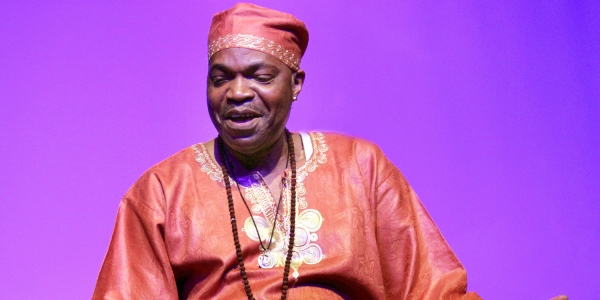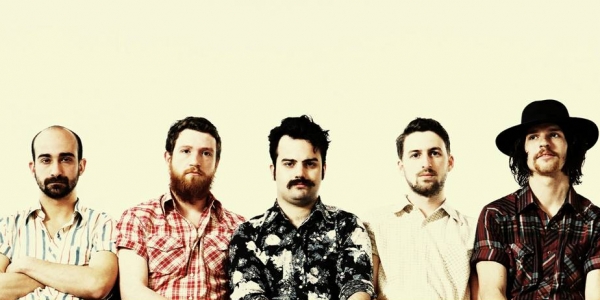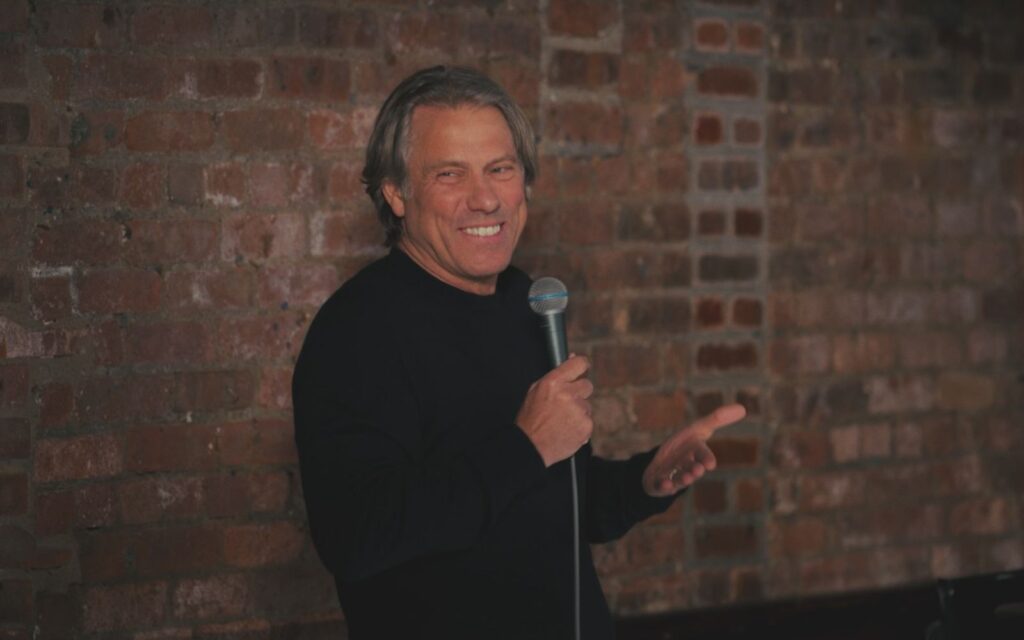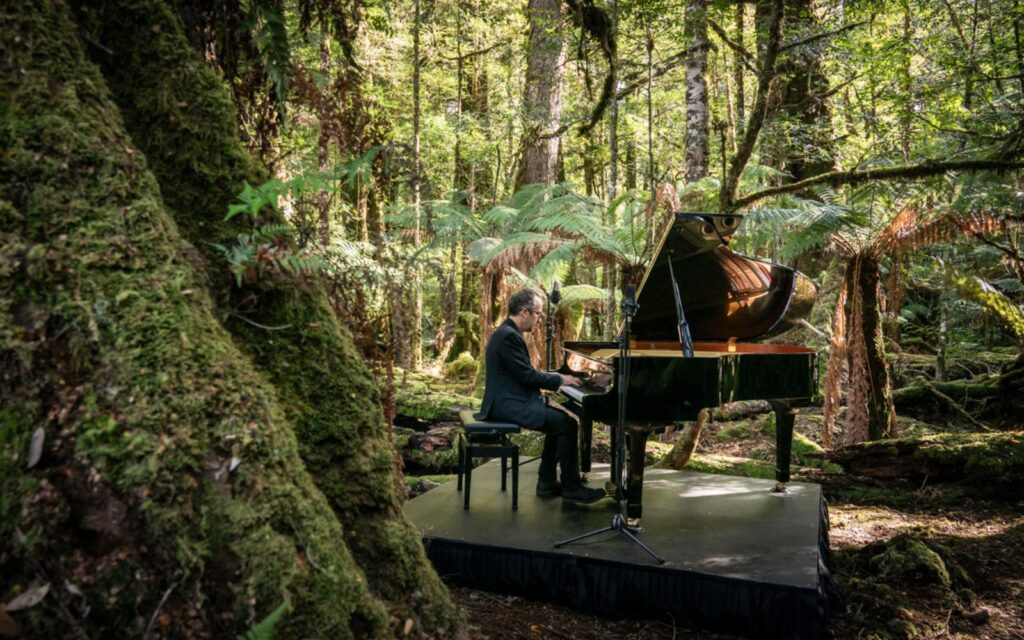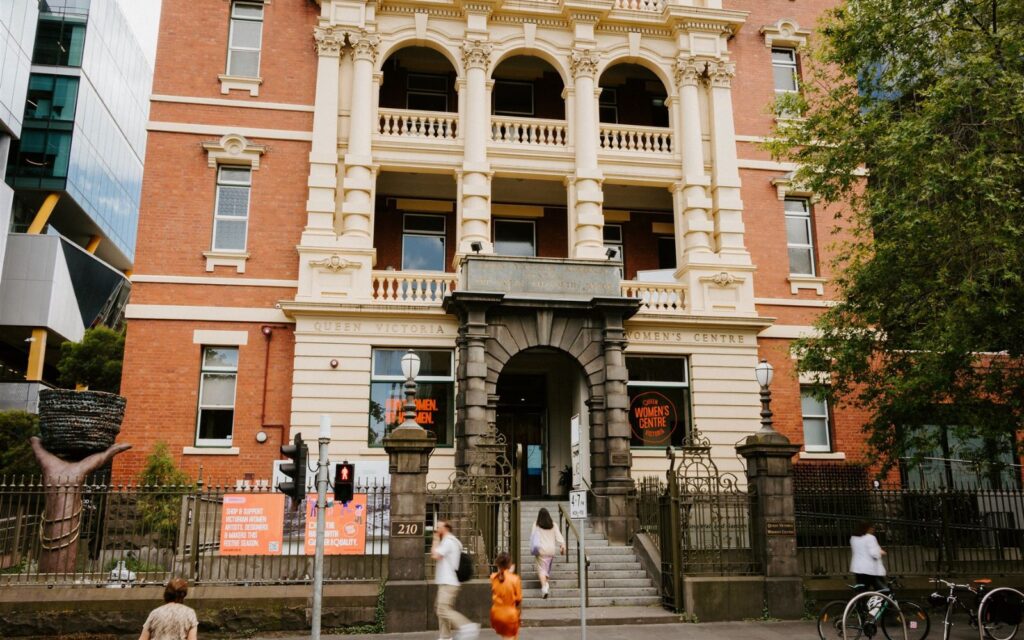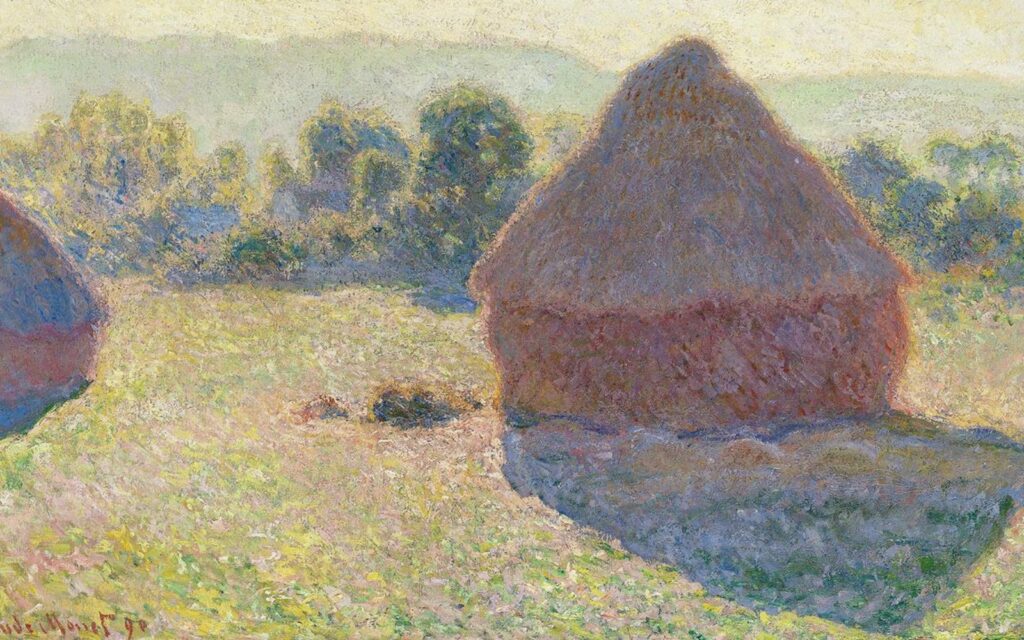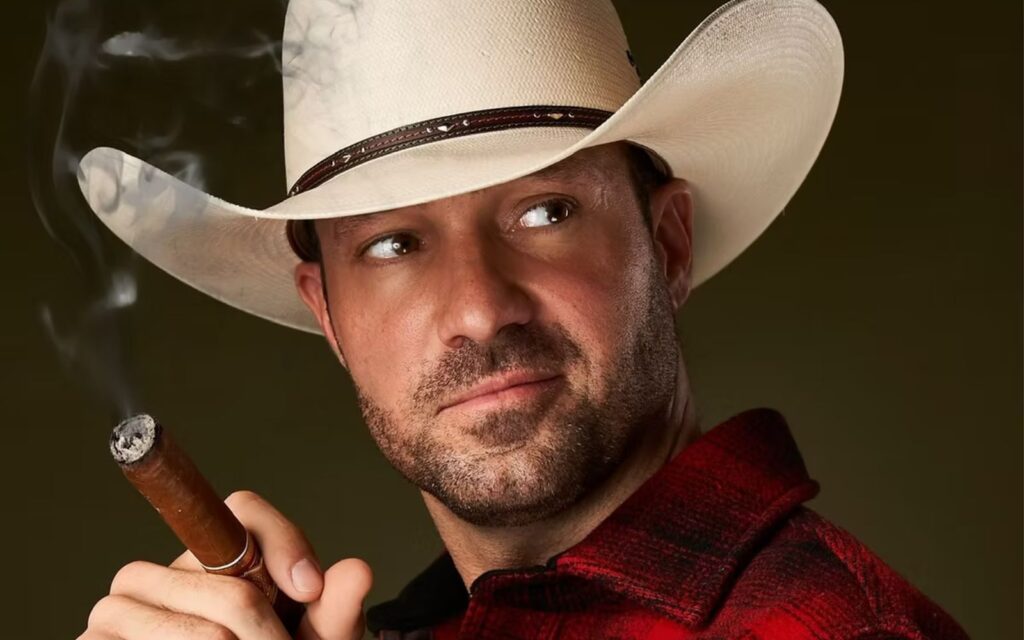“I like to put on a show that expresses the traditional moves of my Congolese heritage, as well as adding my own contemporary improvisational moves,” says Passi Jo. “With my band front-line and also in my dance classes, I like to add some humour and cheekiness as well. All this makes the spirit feel good in the dancing body. Spiritual fulfilment and bodily enjoyment are very important to me. We have some new band members – keyboardist Chris Lesser has joined us, along with two female backing vocalists and a saxophone player. This extends and embellishes the overall sound of the band. With some new songs, we will once again be delivering a powerful afro-salsa punch, along with our tried and true Congolese rumba standards.”
In addition to the live performance aspect of Passi Jo’s involvement in the Globe To Globe World Music Festival, he reveals he will also be teaching a special Congolese rumba/soukous dance workshops later in the afternoon.
“That will be at 5pm,” he states. “Soukous comes from the more traditional slower rumba dance style, which is very sensuous. I will show the participants how to do the classic circular rhythm of the ‘matako’ region, the ‘backside’, which is so characteristic of Congolese dance, ‘tiya tiya’ in Kikongo, my traditional language, which means, ‘Fire! You will be hot!’”
Those wondering what the precise meaning of ‘soukous’ is, Passi Jo explains the word comes from the French version ‘secouer’, meaning ‘to shake’, of course…
“It’s a contemporary version of the traditional slower Congolese rumba,” he explains. “The term ‘rumba’ comes from the Congolese word ‘nkumba’, meaning ‘naval’ or ‘umbilical chord’ – translating to ‘waist’ in Kikongo, my traditional language. It also refers to a form of sensual social dancing that joins couples from the waist. With the slave trade, the word, the dance and the music travelled from the coast of Central Africa to the Caribbean island of Cuba. ‘Nkumba’ was later graced with the Spanish rolling ‘r’ sound and became known as ‘rumba’. These rhythms and songs have survived many generations and the Congo is the ‘heart of dance-ness’ as well as the ‘heart of darkness’. I grew up with this rhythm and it evolved into ‘soukous’ with mine, and subsequent generations.”
As far as his band Warako Musica is concerned, Passi Jo and his colleague Tchico Tchicaya started the project in 1998 when they played their first packed-out performance at the Prince Hotel in Collingwood. Ever since then, Warako Musica have played nearly every music festival in Australia, having also been awarded the Best Live World Music Act at the Australian Music Foundation Awards at The Forum Theatre.
“We received our award from Molly Meldrum!” enthuses Passi Jo. “We’d only been going for two years then, and we were the first African band to receive this award. We were very happy! The journey has been up and down but we continue to perform music that embodies love, joy and hope, and inspires togetherness on the dancefloor. Tchico Tchicaya and I came to Australia in 1990 for a one-month tour to Melbourne and Sydney. I was living in Paris at the time. I met people here and came and went many times before deciding to move here permanently. I love Australia. People were very happy to hear African music. There weren’t so many African cultures living here then. Paris was full-on, with music everywhere and lots of studios to record in. Here was different…I didn’t know a lot of people, but slowly, and with the new band Warako Musica, I have been so privileged to be ale to play music here and work with very talented Australian and international musicians all around the country.”
Passi Jo’s career highlight, however, remains a very special gig which took place all the way back in 1974, when he was just a teenager…
“I was only 19 years old!” he recalls. “I was playing with Orchestre Veve in Kinshasa during the music festival as part of the Rumble In The Jungle fight between Muhammed Ali and George Foreman in 1974. I was on the same bill as James Brown, Johnny Pacheco, Fania All-Stars, Barry White, Celia Cruz, Jose Feliciano, Manu Dibango, Franco, Rochereau… I had no idea that one day I would meet and play with these artists, the ‘renomee’ or ‘big names, famous people’ of music. And I hadn’t even left Africa yet!”
At the moment, Passi Jo reveals he has a multi-art form performance project in the works which involves music, dance and photography with a number of Latin and African performers. With the project due to start in July and continue through to December, Passi Jo plans to bring over some old friends from Paris at some point, too.
“It’s an exciting collaborative multi-art form project in the Docklands area. I would also like to bring some of my music colleagues from Paris, people like Nyboma, Syran Mbenza, Wuta Mayi, Bopal, Miguel Yamba, members of the super-group Kekele, artists I worked with extensively in Europe and Africa before moving here. They are all very keen to come here and could contribute fantastic things to the Melbourne music scene.”
BY BIRDIE
